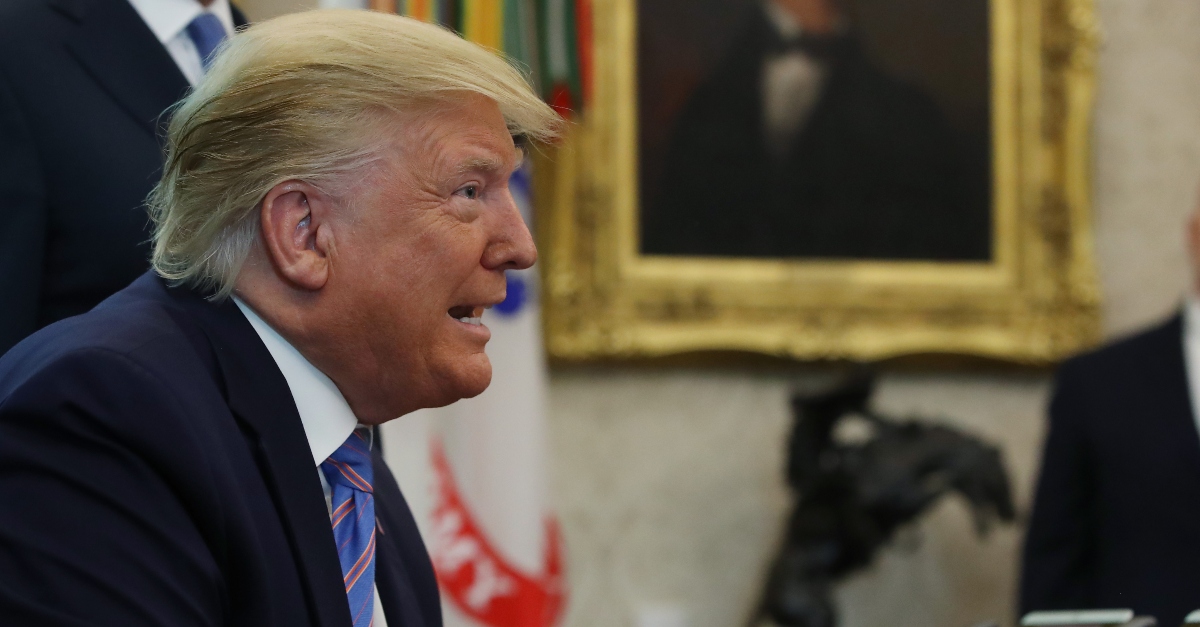
Would it work if President Donald Trump really issued an executive order to add a citizenship question to the 2020 census? Marc E. Elias, general counsel for Sen. Kamala Harris‘s presidential campaign and former attorney for the 2016 Clinton campaign, argued Thursday that this move lacks a constitutional basis.
Indeed, the Census Bureau’s website confirms this “The U.S. Constitution empowers the Congress to carry out the census in ‘such manner as they shall by Law direct’ (Article I, Section 2).” https://t.co/kxxyIpqwCM
— Marc E. Elias (@marceelias) July 4, 2019
Exactly. And given that the Commerce Department gets its power from the Congress, I don’t really see how the President ordering Commerce to do something that 5 Justices on the Supreme Court said was not authorized because the reasoning was pretextual will work.
— Jennifer Taub (@jentaub) July 4, 2019
In other words, Congress sets the guidelines for this, not the president.
Sources said that the administration is looking into whether they could get away with an executive order to add the census question, according to Axios. Even if they failed, however, they could shift blame to Supreme Court Chief Justice John Roberts, said a person “familiar with some of the administration’s internal deliberations.”
The Axios article cited former federal appellate Judge J. Michael Luttig, who was nominated to the bench by President George H.W. Bush. He argued that the Supreme Court would “affirm the constitutional power of the president to include the citizenship question in the census” if there were an executive order backed by Trump’s Article II powers.
This analysis threw off election law expert Professor Rick Hasen of the University of California, Irvine. Like Elias, he pointed out the census being mentioned in Article I.
Judge Luttig refers to Trump’s Article II powers but census in Article I (thanks @ConstitutionCtr): pic.twitter.com/3rGdmM8IaC
— Rick Hasen (@rickhasen) July 4, 2019
“My bottom line is that—executive order or not—if Trump tries again with citizenship question on census, Chief Justice Roberts is the only one that matters and he will be put off by this amateur hour,” Hasen wrote.
Hasen expanded on these thoughts in a blog post:
I don’t see how doing this through an executive order helps at all. The issue is not whether the President (or Commerce Secretary) has the right to add a citizenship question, per the Supreme Court’s Department of Commerce decision last week. The issue instead is whether there is a good enough reason for including the question that is not a pretext.
It seems stronger for that reason to come from the Commerce Secretary and the Census Bureau than declared in an executive order.
While the Supreme Court did not say that including a citizenship question was per se impermissible, it did say that the administration’s official rationale (enforcing the Voting Rights Act) “seems to have been contrived”:
We are presented, in other words, with an explanation for agency action that is incongruent with what the record reveals about the agency’s priorities and decisionmaking process. It is rare to review a record as extensive as the one before us when evaluating informal agency action—and it should be. But having done so for the sufficient reasons we have explained, we cannot ignore the disconnect between the decision made and the explanation given.
The high court determined that the lower court’s blocking of the question was warranted, and sent the question back to the Department of Commerce so it could come up with a new rationale.
The census situation is a hot mess, but as of right now, there’s no citizenship question on it. The Department of Justice seemingly caved on the issue Tuesday, saying that the printer was instructed to begin the printing process without the question. Trump, however, is still pushing for another way. His Wednesday insistence on Twitter completely baffled government lawyers and a federal judge.
[Image via Mark Wilson/Getty Images]